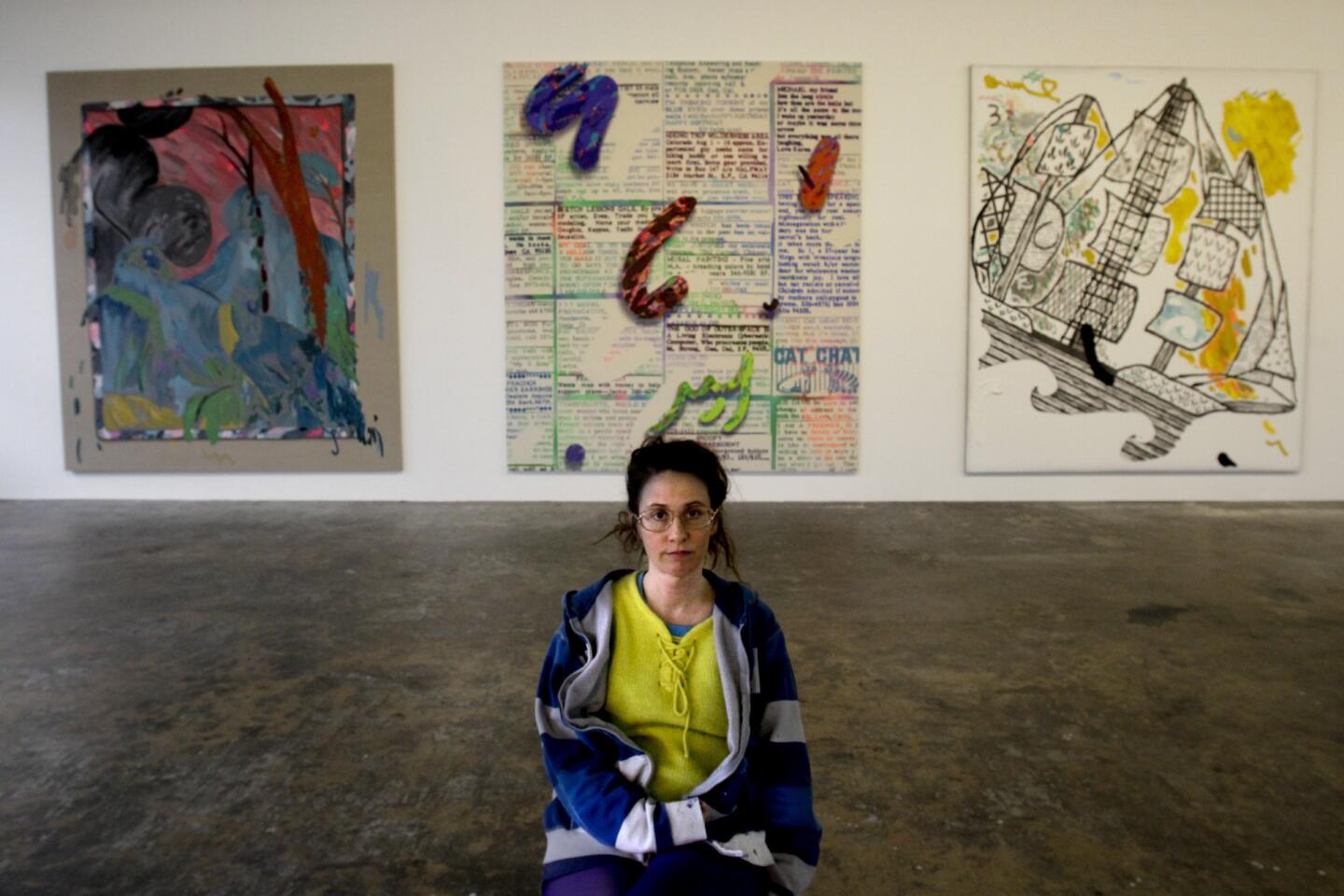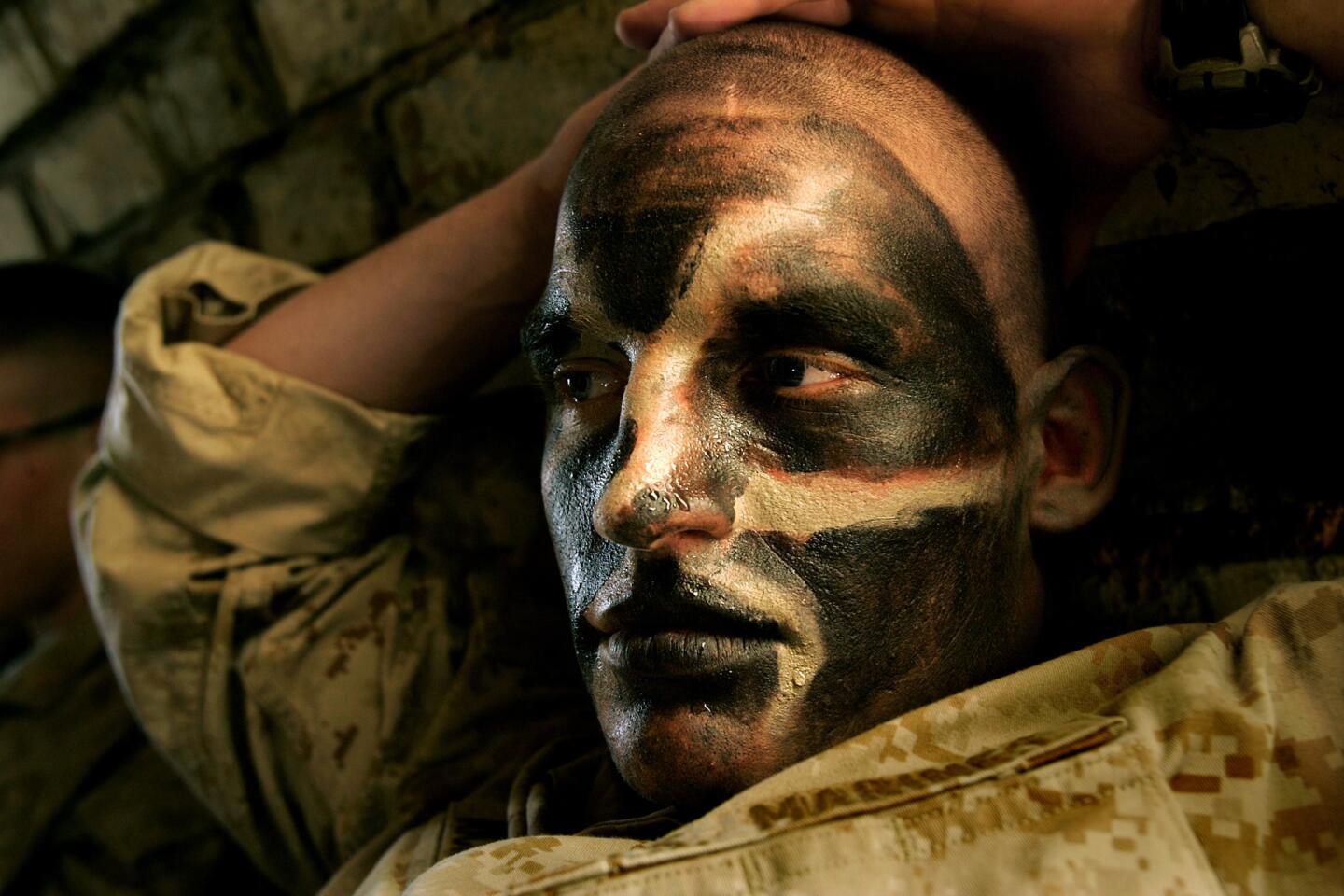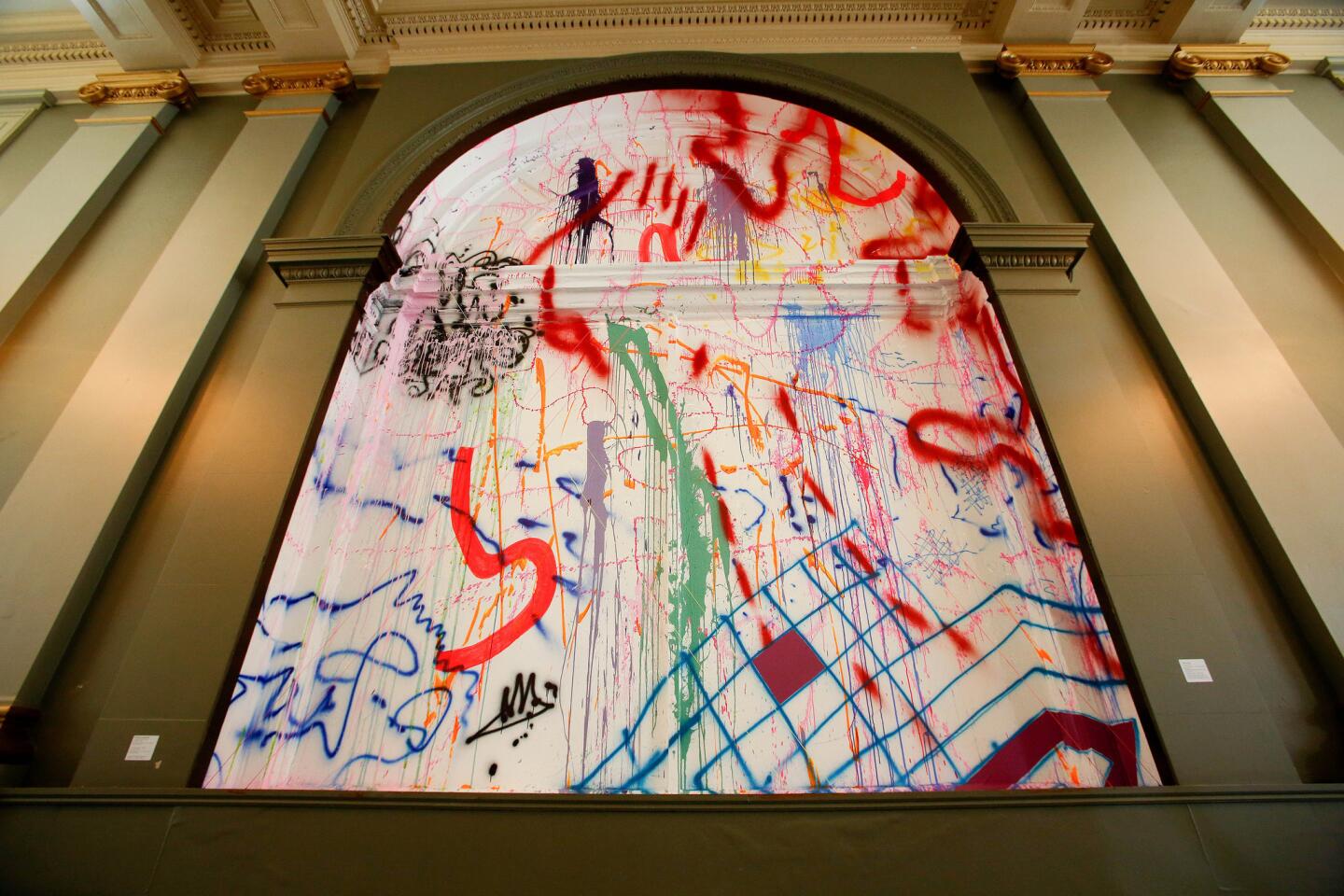George W. Bush tries to paint over a failed presidency
- Share via
This was the year that George W. Bush, five years after his calamitous presidency, came in from the wilderness and went on “The Tonight Show With Jay Leno” to say, “I think I’m a painter.” He presented his host with a grinning portrait, and the audience clapped.
The statement was not uttered with the surety of “I’m the decider, and I decide what’s best,” the much-mocked 2006 message delivered to reporters as a vote of confidence for Donald Rumsfeld, embattled secretary of Defense.
The quagmire in Iraq was then thick, political support at home was unraveling. Just six days earlier the Washington Post had revealed that, for years U.S. intelligence officials possessed evidence that White House claims about the existence of weapons of mass destruction were false.
The decider statement came when the news media claque was called to announce Bush’s pick for a new White House budget director. Two years later, almost to the month, the American economy went over a cliff.
GRAPHIC: Best of 2013 | Entertainment and culture
Forty-seven thousand U.S. troops were still in Afghanistan and smoke was still rising from the nation’s fiscal wreckage when Bush told Leno that, upon deciding to pick up a paintbrush, he admonished his private tutor: “There’s a Rembrandt trapped in this body. Your job is to find it.”
Bush’s paintings had gone public in February — not by the artist’s design but in a manner fitting to our age. A hacker known as Guccifer gained access to the personal email accounts of Bush’s sister and several family friends. The attached pictures instantly went viral.
Photographs of paintings in progress included images of dogs, a domestic interior and Bush examining his toes emerging from the water at the far end of a bathtub. In another, his face is glimpsed in a shower’s shaving mirror. More than one prominent art critic rushed into print to extol the virtues of the ex-president’s aesthetic accomplishments.
“I love these two bather paintings,” gushed one, pleading with New York’s Whitney Museum of American Art to snap one up and comparing the painter favorably to Jean-Baptiste-Siméon Chardin, the 18th century master of scenes from daily life. Bush’s work, another enthused, would not be out of place in a group show with paintings by the talented Dana Shutz, Karen Kilimnick and Alice Neel.
PHOTOS: Knight’s best art moments of 2013
Such critical praise is mostly embarrassing, because no writer has yet laid eyes on anything more than a reproduction. (Twenty-five paintings are now known, including a portrait of a stray cat named Bob.) Disembodied Internet images are without size, surface, scale or specific color — attributes that, from where I sit, play a prominent role in a painting’s engagement. Without them, Bush’s art conveys only subject matter plus a vague hint of academic likeness.
That and an essential celebrity status. Bush’s TV banter with Leno amounted to carefully staged celebrity public relations, complete with a painted portrait as prop. It was delivered by a man who had gone from the most powerful platform in the world to the almost total seclusion of a gated North Dallas cul-de-sac, where he now lives.
“Pretending Bush disappeared from the face of the Earth has been critical to an attempted Republican Party makeover,” Jay Hagan wrote last year in a lengthy article in New York magazine. “Among Republicans in his home state, purified in the fires of the tea-party movement, Bush is persona non grata.”
Less noticed in Hagan’s story was this, written in passing: “While the rest of the world judges his years in office, he’s taken up painting, making portraits of dogs and arid Texas landscapes.”
ART: Can you guess the high price?
In reality, judgments of Bush’s years in office and his newfound hobby are intimately related. As he later told Leno, reading Winston Churchill’s famous essay, “Painting as a Pastime,” launched him on his artistic path.
The essay, started in 1932 but not published until 1948, compares painting to fighting a war. Even after the success of World War II, Churchill agonized over his tragic failure as first lord of the Admiralty in the 1915 Battle of Gallipoli, where more than 200,000 Britons died. When absorbed by painting, he wrote, worldly anguish falls away.
In the Oval Office, Bush had ostentatiously displayed sculptor Jacob Epstein’s hefty bronze bust of the British prime minister. It’s no wonder that, in his Texas redoubt, he has taken note of him again.
Churchill was an embattled wartime prime minister who fell out of political favor and got kicked to the curb. But late in life his reputation rose again, making him his nation’s most revered political figure today. According to Hagan, Bush, now 67, is likewise convinced posterity will vindicate his presidency.
Creation must exert a powerful compensatory appeal for a lifetime emblazoned with epic destruction. But even if the Whitney were to acquire a humble Bush cat painting, the catastrophes at home and abroad make a tragedy like Gallipoli seem small. Good luck with trying to paint your way out of history’s cul-de-sac.
More to Read
The biggest entertainment stories
Get our big stories about Hollywood, film, television, music, arts, culture and more right in your inbox as soon as they publish.
You may occasionally receive promotional content from the Los Angeles Times.














